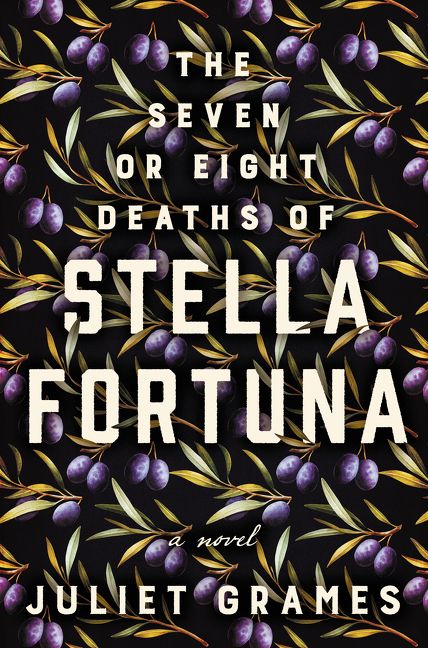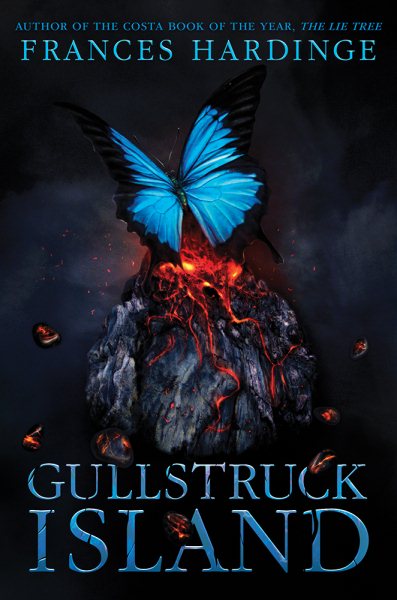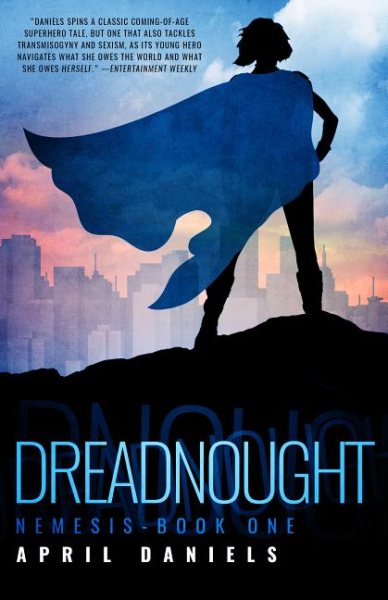AMY TENBRINK: You have a B.A. in History. What drew you to that major—and what can one do with a history degree? How does having a history background help you as a reader, editor, and writer?

JULIET: I’m obsessed with historical storytelling—it’s the reason I majored in history and the reason I didn’t pursue it professionally. (Real historians aren’t supposed to look for narrative in data—in fact they’re supposed to try to reject narrative assumptions! I was going to fail at that.) There is a lot you can do with a history degree—it was one of the two most common at my college, and a lot of my cohort went into law or government jobs. I ended up devoting my life to storytelling as a writer and an editor instead, but my history background has been really helpful for developing research and analytical skills.
AMY: As readers, we see a lot of books shelved or classified as literary works, crime fiction, or romance novels when they could be fantasy, and vice versa. And so often, these mis-shelved works examine myths, folklore traditions, or experiences that a mainstream U.S. audience might not be familiar with. What, in your opinion, makes a work one of fantasy as opposed to something else? Do you find these categories useful or not?
JULIET: In my opinion, the single genre-defining characteristic of fantasy is worldbuilding. It’s the reason a devout SFF reader can find satisfaction in a well-crafted historical novel with no speculative elements in it. What we (fantasy readers) want is richly and responsibly developed worlds that allow us a completely immersive reading experience. Worldbuilding is the reason we as readers are willing to accept elements of the fantastical—we are there to be convinced and transported if the writer upholds their end of things.
I love and hate categories. I love and hate genre distinctions. As a crime fiction editor who has professional reasons to both be frustrated by and adore genre conventions, I appreciate the readers who devote themselves to a genre but strongly dislike when genre labels are used as disparagement.
AMY: You’re the Associate Publisher of Soho Press, and you also curate the award-winning Soho Crime imprint. What does being Associate Publisher entail? What has been your biggest surprise in working with crime fiction?
JULIET: As Associate Publisher my main job is helping the publisher with day-to-day big- and small-picture running of the press (things ranging from budget planning to making sure inventory of individual titles is at the right level). That’s about half my job; the other half is the editorial side, acquiring and editing the Soho Crime imprint. I was surprised ten years ago when I started at Soho to find out how much I loved crime fiction—my only preferred genre up until that point had been SFF. Now I will happily get up on my apologist soapbox about either or both!
AMY: Your debut novel The Seven or Eight Deaths of Stella Fortuna came out in May and is based on your own tight-knit Italian immigrant family. How do your experiences reading and editing international fiction and fiction in translation affect your writing process—or is it the other way around?

JULIET: Reading translations is a brain-breaking and -remaking practice that every writer of any genre should engage in. When you read literature from a culture other than the one you grew up in, you learn to make a habit of challenging your own assumptions, which makes you more creative. Thinking about different frames of reference and available lexicons is a hugely important part of character building—and of course character building is the most important part of storytelling. (Editing, which requires a really granular level of applied thought about word choice and phrasing to avoid cultural imperialism, has also been extremely important to me.)
AMY: This fall, you’re presenting a reading workshop intensive titled “Not All Who Wander are Lost in Translation” as part of the Sirens Studio. Would you please give us a preview of what Studio attendees can expect to discuss and learn?
JULIET: We’ll outline the translation process from country of origin through English-language publication, talking about the access points, financials, and shortcomings of our systems for encountering literature in translation. We’ll cover different ways to be involved in literature in translation for those who are interested, including as translators, as publishers, or as advocate readers. And we’ll share favorite literature in translation!
AMY: Sirens is about discussing and deconstructing both gender and fantasy literature. Would you please tell us about a woman or nonbinary person—a family member, a friend, a reader, an author, an editor, a character, anyone—who has changed your life?
JULIET: I have been gifted with a life jam-packed with wonderful, generous, inspiring women. I have lingered a long time here over trying to pick one of them. In the end I will go back to the beginning and tell you about my Great Aunt Connie Sanelli, who passed away in April at age 97—she desperately wanted children but was never able to have her own, and instead raised my mother and her brothers, then later me and my cousins, like we were her own children. She emigrated from an impoverished village in Italy in the 1930s and made a different life for herself here through hard work and sheer force of will. She gave me my pride in my cultural heritage, my first access to language other than English, and my devotion to telling women’s forgotten stories, which I hope I have succeeded in doing by fictionalizing hers. Thank you for offering me the chance to talk about her.
Juliet Grames is the associate publisher at Soho Press, where she acquires and edits a range of fiction and literature in translation, and where she curates the award-winning Soho Crime imprint. Her debut novel, The Seven or Eight Deaths of Stella Fortuna, was published in May 2019 by Ecco/HarperCollins in North America and by Hodder & Stoughton in the UK.
For more information about Juliet, please visit the Soho Press website or her Twitter.









































Connect with the Sirens community
Sign up for the Sirens newsletter